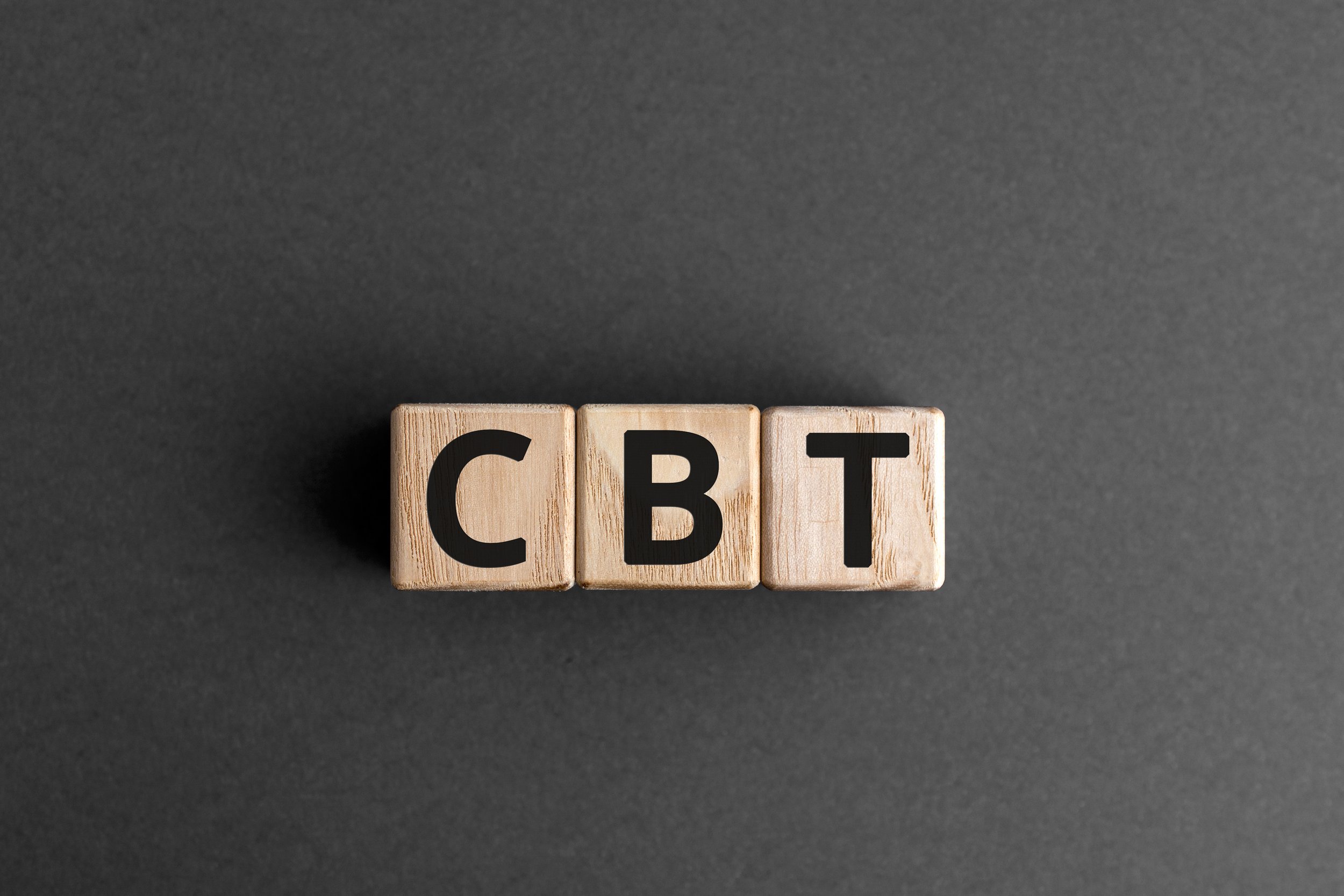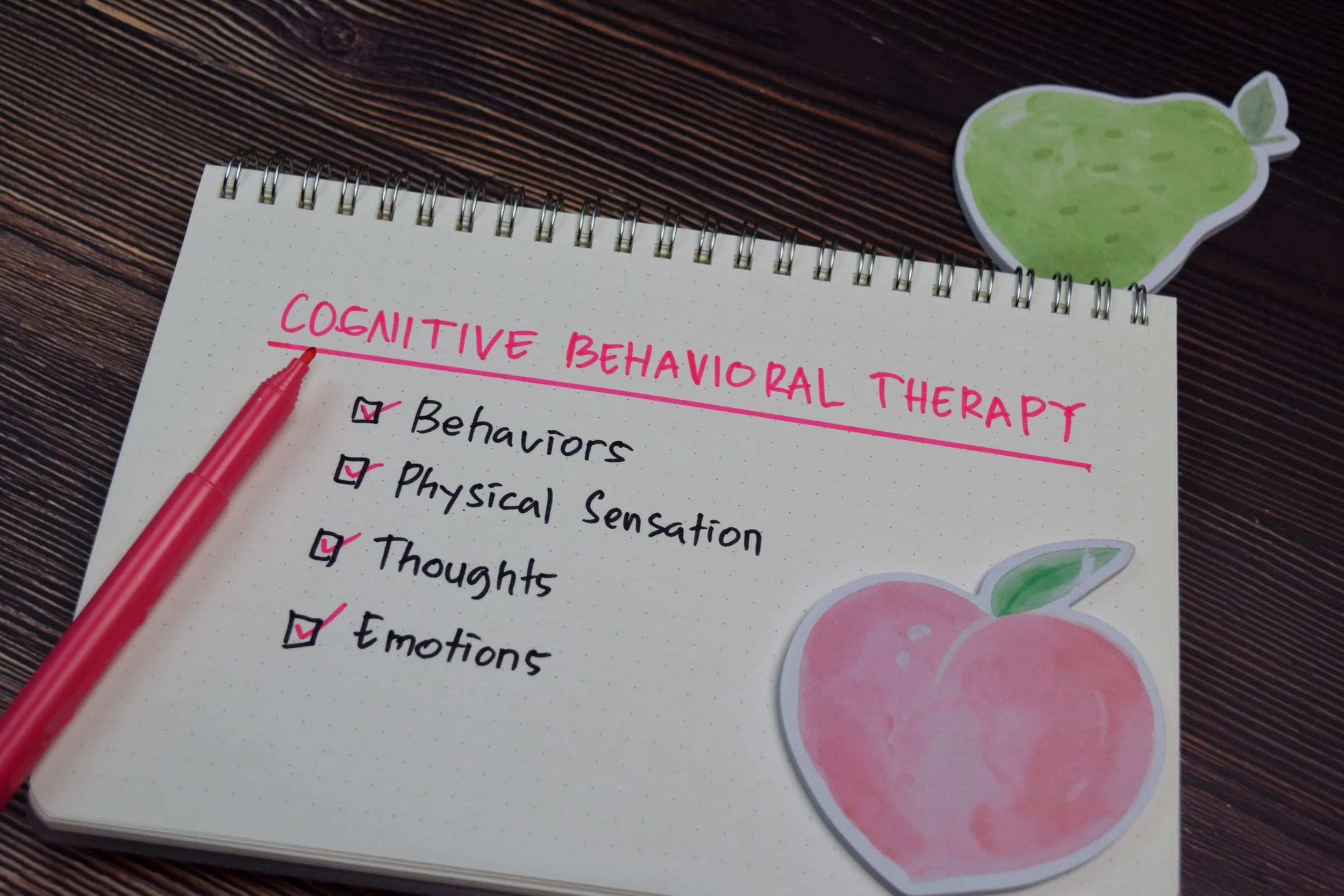
Cognitive Behavioural Therapy
Cognitive Behavioural Therapy (CBT) is a structured, time-limited psychotherapy that empowers individuals to identify and challenge unhelpful thought patterns and behaviors. By focusing on the interplay between thoughts, emotions, and actions, CBT offers practical tools to manage and overcome various mental health challenges.
Understanding Cognitive Behavioural Therapy
What is CBT?
Cognitive Behavioural Therapy (CBT) is a structured, evidence-based approach that focuses on the connection between thoughts and behaviours. Negative thought patterns often lead to distress and unhelpful behaviours, reinforcing emotional struggles. CBT helps identify and change these patterns, promoting healthier ways of thinking and responding. Through structured techniques, individuals gain practical tools to manage challenges and improve their mental well-being.
Core Principles of Cognitive Behavioural Therapy
-
Automatic negative thoughts often occur without conscious awareness, shaping emotions and behaviors. CBT helps individuals recognize these patterns and understand how they contribute to stress, anxiety, and low mood.
-
Once negative thoughts are identified, CBT encourages evaluating their accuracy. Many self-defeating beliefs are based on distortions or assumptions rather than facts. Therapy helps reframe these beliefs into more balanced, evidence-based perspectives.
-
CBT promotes replacing negative thoughts with constructive alternatives. By shifting perspectives, individuals can improve self-confidence, reduce emotional distress, and respond to situations in a healthier way.
-
Avoidance and inactivity often reinforce negative emotions. CBT encourages engaging in positive, meaningful activities that promote well-being. By taking intentional steps to reintroduce enjoyable and fulfilling experiences, individuals can improve their mood and motivation.
CBT provides a structured framework to break unhelpful cycles, build emotional resilience, and create lasting positive change.
CBT is based on the idea that thoughts, emotions, and behaviours are interconnected. Negative thought patterns contribute to emotional distress and unhelpful behaviours, reinforcing mental health struggles. By identifying and changing these patterns, you can improve emotional regulation, develop healthier coping strategies, and regain control over your well-being.
CBT is structured, time-focused, and results-driven. It provides practical skills that can be applied daily, helping individuals make lasting changes in how they think, feel, and respond to challenges.
Benefits of Cognitive Behavioural Therapy
CBT equips you with actionable strategies to navigate life’s challenges.
By identifying and modifying unhelpful thought patterns, you gain better control over your emotions, reactions, and decision-making.
Manage Stress More Effectively
Learn techniques to reduce overwhelm, improve time management, and build resilience against daily pressures.
Improve Problem Solving Abilities
Strengthen critical thinking skills to approach challenges with clarity and confidence.
Break Negative Thought Patterns
Identify cognitive distortions that contribute to anxiety and replace them with realistic, constructive thinking.
Develop Healthy Coping Mechanisms
Replace avoidance, self-sabotage, or unhelpful habits with practical strategies that support long-term well-being.
Mental Health Challenges CBT Can Help With
CBT effectively treats anxiety, stress, trauma, and unwanted habits. It reduces excessive worry, panic attacks, and social anxiety by challenging intrusive thoughts and avoidance behaviors.
Stress-related issues, including workplace burnout, can be managed through structured coping techniques. CBT also helps individuals process phobias and PTSD, providing tools to manage distressing triggers and regain confidence. Additionally, it addresses impulsive behaviors like excessive shopping, gaming, or substance use by identifying triggers and building healthier coping mechanisms.
CBT provides long-term strategies for emotional stability and mental well-being.
Why Choose Rooted Counselling Services for CBT?
At Rooted Counselling, we specialize in evidence-based therapies like CBT to help you achieve meaningful, lasting change.
What Sets Us Apart?
Experience – Specialized training in CBT techniques
Personalized Treatment Plans – Strategies tailored to your concerns and goals
Supportive & Judgment-Free Environment – A safe space to explore and overcome challenges
Goal-Oriented Therapy – Focused on achieving measurable progress
CBT is not about quick fixes—it’s about building long-term skills that help you navigate life with confidence.
What to Expect in Cognitive Behavioural Therapy
Assessment & Goal Setting
Your first session focuses on understanding your concerns and setting a clear direction for therapy. You will:
Discuss your concerns, symptoms, and goals for therapy
Identify patterns in thoughts, emotions, and behaviours
Develop a personalized treatment plan based on your needs
Long-Term Strategies & Progress Review
Before completing therapy, you will review progress and ensure you have the tools to maintain positive change. You will:
Review progress and reinforce positive changes
Learn relapse prevention techniques for lasting results
Create a plan to maintain improvements beyond therapy
Skill Building & Practice
As therapy progresses, you will work on strategies to manage thoughts and behaviours more effectively. In each session, you will:
Learn techniques to challenge unhelpful thinking
Develop problem-solving strategies for everyday challenges
Practice coping skills to manage stress, anxiety, or low mood
Apply learned strategies outside of sessions for real-world results
Are you ready to begin your healing journey with the help of Cognitive Behavioural Therapy? Book a free consultation to get started!
Get In Touch
Need mental health support without the long wait? Rooted Counselling Services is accepting new clients with daytime and evening sessions available. To see if we’re a good match, you can schedule a free video or phone consultation.
Just fill out the contact form and share a bit about what’s bringing you to therapy.








